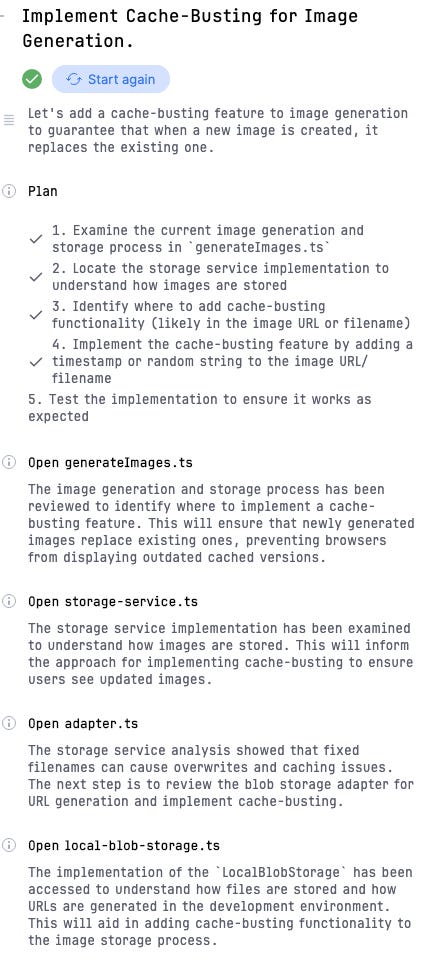First Look: Junie Might Replace Your Copilot
Agentic coding meets structure and reliability. But it’s not ready for deep abstraction just yet.
Junie was publicly released on April 16, 2025, after a few months in private preview. It's now available in IntelliJ IDEA Ultimate, PyCharm Professional, WebStorm, and GoLand—support for other JetBrains IDEs is expected soon. Currently macOS and Linux only; Windows support is in the pipeline.
Benchmarks like SWEBench Verified show it solves over 50% of developer tasks on a single run, putting it ahead of most AI coding tools in raw capability. But what matters more is how it performs in real workflows.
Somewhere between a copilot and a full-blown agent, Junie brings structure, focus, and just enough autonomy to feel useful without overstepping. I ran it through a few tasks in an existing Next.js project—real code, real context, no hand-holding.
✅ What Worked
Pattern-following is solid. I dropped it into a codebase (Next.js/Typescript/App Routing) it had seen before, and it picked up the thread quickly—found the right files, followed established conventions.
Structured approach. Its workflow is segmented, clear, and task-driven. Less “conversation,” more “execution plan.” Honestly refreshing.
Handled basic scaffolding and glue work well. Especially when the work was deterministic—generate a file, update references, link the logic—it didn’t need coaching.
Error checking exists. Not bulletproof, but it surfaced a few issues before runtime.
Cache-busting example: I asked it to implement cache-busting for image generation. It identified the right modules (
generateImages.ts,local-blob-storage.ts, etc.) and built a reasonable plan with clean execution. Attached screenshot speaks for itself.
❌ Where It Choked
Complex abstractions threw it off. It couldn’t handle a more nuanced storage accessor setup. I handed that to Augment, which nailed the rewrite.
No real “debug mode.” If something fails, you get a new process, not a conversation about what went wrong.
UI is functional but a little cold. Personally, I like agents with personality—it adds something to the interaction. Junie doesn’t have that, which might be a plus for some, but I miss the spark.
Transcript history is actually solid. It’s just not obvious if re-running a process makes sense after the underlying code has changed. That feels like a workflow question more than a tooling one.
🤔 Misc. Observations
Re-running previous processes is possible. Still not sure how useful that is.
No persona, which I actually like. Feels... Scandinavian.
Using it reminded me how much I prefer WebStorm’s polish over VS Code. Switched back mid-session.
Verdict
Junie’s not here to flirt with your creativity—it shows up, gets to work, and moves on. That’s a win. It’s not ready to handle complex architectural logic, but for well-scoped, pattern-matching work, it’s fast, agentic, and productive. If the pricing lands right, it’s a clear upgrade from today's copilots.
It stays in the rotation.





Strong agree on the warm feeling about returning to Jetbrains IDEs, and my wish that their quality could embue the current crop of AI agents with better everything... but I hit too many frustrating disappointments and even a bizarre loss of several hours of work, which is so inconsistent with the thoughtfulness and maturity of their tools I began to suspect aliens...but whatever the source I couldn't keep working with a tool that led to that outcome. Someone let me know when it's safe to try again.